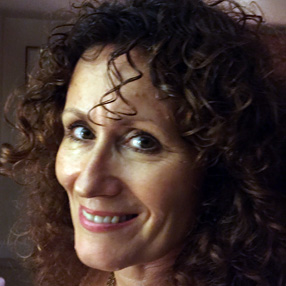Shake your kabina! A musical, dancing tour of Uganda
The Culture of Uganda – in rhythm and dance
Tick-tick-tick goes the bamboo on the calabash.
Sh-sh-sh-shake the seeds in the gourd.
Thump-thump-thump thuds the stick on the taut hide of the drum.
The early evening air in the Ndere Centre’s ampitheatre fills with the rich, bass sound of the harp-like adungu.
Men beat the surface of the drum hard with the flat of their hands. The drumming rises to a crescendo as the women dancers elegantly descend the stairs into the open air Amphitheatre, all brilliant smiles and waving arms. And then it starts!
A group of twelve women shake their hips, moving to a joyful, seductive rhythm. They throw back their heads as they circle the floor to the sound of the dexterous plucking of the adungu. To one side of the stage, five men play a giant wooden xylophone.
Ten drummers and acrobats in bark cloth tunics fly onto the stage, doing press ups and mock fighting and doing press-ups. They SLAP the sides of the drum with sticks. With big grins on their faces, the acrobats race towards the audience, arms flailing and legs akimbo, kicking left and right. Round and round they go. The energy of the Maggunju, the Royal welcome dance of the Baganda, holds the audience captive, ready for our musical and cultural tour of Uganda.
As our host – and cultural ambassador – Stephen Rwangyezi walks down through the audience to welcome us, a little white boy runs up to him and starts playing Stephen’s drum.
“Forget your problems – we are going to take you to the different parts of the country.” Stephen tells us. “Now WE are the donors” – he tells the predominantly Muzungu audience – as we have something in abundance to offer YOU!”

The Culture of Uganda – in rhythm and dance. Stephen Rwangyezi takes the audience on a musical, dancing tour of Uganda at the Ndere Cultural Centre. Photo Ndere.
In Western Uganda, it’s all about the cows.
We listen to the music played to relax the cows. “After walking 20 kilometres each way to drink water, wouldn’t you be stressed?” He asks. Even the okujumeera – the sound of cow mowing is developed into the singing while the thudding of their hooves – is reflected in the dance steps of Western Uganda.
Through his anecdotes, Stephen reminds us of the continent’s enormous contribution to global culture. He illustrates how the traditional sounds of Africa can be heard in modern American rap music.
“Who is President Obama?” He asks, but “the Original Black African Managing America.”
We pass through Bunyoro and Toro “where love was first invented.”
We hear a haunting song from Ankole and then we move on to the upbeat sound of the West Nile and the adungu.
The Amphitheatre is filled with a frenetic whirl of colour and a flash of white teeth. KABINARIFIC! The women dancers whip up a storm on the dance floor. Fast and furious, how do the men play those drums so speedily? (I can’t even tap my fingers that fast).

Ndere Troupe Stephen Rwangyezi. The Culture of Uganda – in rhythm and dance. A musical, dancing tour of Uganda at the Ndere Cultural Centre. Photo Ndere.
We can’t pass through West Nile without a historical anecdote, of which there are many interweaved throughout the evening. Of Idi Amin, Stephen says “when he was in the country, people were scared. When he was out of the country, people were embarrassed.” He recounts how, time and again, cultural and language blunders rolled out of the then president’s mouth.
Later in the show, children are invited onto the open stage. 27 kids of all ages listen attentively to Stephen’s every word. It’s an unexpected highlight of the evening to see him invite each child to do their turn in the circle. I find it extraordinary to think that not so long ago this dancing was banned. (Even now colonial legislation still exists in Uganda that in theory makes traditional dancing illegal).
As the show draws to an end I recognise the unmistakable whistles of the music that made me first fall in love with Uganda.
The male dancers wear bright green beads around their waists over imitation (I hope) leopard skin tunics. Long colourful beads drape over their shoulders, criss-crossing at the waist. Their headdresses have white tuft-like tails. The women wear thin strings of beads around their foreheads.
“If you dance together you can never be at war.”

Shake your kabina! The Culture of Uganda – in rhythm and dance. Photo courtesy of Stephen Legg
The dancers genuinely seem to love what they do. There’s a great camaraderie and joking around between the dancers and Stephen. Their passion and playfulness is contagious.
How many shows are there in Uganda that you would rush to see more than three times?
“When people in our culture dance, you don’t let them suffer alone – you join in!” So just remember, next time you feel stressed, do as Stephen suggests: “shake your seating facilities.”
The Muzungu recommends:
Watching the Ndere Troupe perform takes me back to my first Kampala night out, courtesy of VSO. The show is a fantastic introduction to Uganda. It’s a real celebration of Africa and everyone should see it. I remember sitting on the edge of my seat thinking, “I’m finally here. I’m in Africa!”
The colour, the energy, the smiles and the humour, the stories… the whole experience was everything I’d imagined Africa to be and more.
Ndere Cultural Center entrance fees
Last published entrance fees below. Please check with the booking office first. Buffet dinner, snacks and drinks are available.
- Adult Ugandans 30,000/-
- Adult Non Ugandans 50,000/- or $ 15
- Children Aged 2 to 15 – 15,000/-
**Note: These prices do not include buffet
How to book to see the Ndere Show
Ndere Cultural Centre is on Plot 4505, Kira Road, Ntinda – Kisaasi Stretch
This article was originally commissioned by the Empazi Magazine, the brainchild of Ugandan creative Arnie Petit.
Have you visited Kampala’s Ndere Center yet? What was your favourite part of the show?
I love birds! Uganda’s Big Birding Day
Diary of a Muzungu is proud to be a sponsor of Big Birding Day 2013, supporting the next generation of birders in Uganda.

Diary of a Muzungu is delighted to support Big Birding Day (BBD) Uganda
How many birds will you see at Big Birding Day 2013?
Bigger and better than ever, help us beat last year’s record – 290 birders in 58 teams, birding in 35 areas, recording 657 species (63% of the total species of Uganda recorded and an increase of 82 species from the 2011 record)!

The Muzungu with young birder Hope at Kasenge on International Day of the Safari Guide. Photo courtesy of Titus Kakembo and Uganda Tourism Press Association
This Friday 18th October is the official launch of Big Birding Day 2013 at the Uganda Museum in Kampala.

Diary of a Muzungu helped promote Big Birding Day 2013
The free to enter Big Birding Day race is a 24 hour competition this Saturday, 19th October, at dozens of sites across Uganda, involving birdwatching groups competing to score the longest bird species list in 24 hours. Birding teams are led by professionally trained guides and experienced bird guides from NatureUganda membership and UWA staff. Each group must have at least 2 members who are experienced bird watchers to confirm the species identification.
All birds seen and/or heard calling within these sites will be recorded (TICK!) A tally centre will be set up at NatureUganda to receive and check all records.
The Uganda Wildlife Authority (UWA) and National Forestry Authority (NFA) are offering FREE entry for all Big Birding Day participants birding in National Parks, Wildlife Reserves and Forest Reserves – but you need to register your team first. (Scroll down for the flyer and contacts below).
…And if you can’t make the Big Birding Day race this Saturday, why not join us for the Festival Saturday 26th October? Here NatureUganda will name the Big Birding Day winning teams at Kitante Primary School Gardens (behind the Uganda Museum). This free event is open to the whole family and will be a chance to learn more about birds and birding. There will also be live music, dancing, face painting for the kids and more…
What can you expect from the Big Birding Day 2013 Race?
One year I was lucky enough to tag along with expert birders Roger Skeen and Nathan Eluku who recorded an incredible 175 bird species between Namuwongo, Kampala and Entebbe. What a fantastic day out it was. And the best bit? Our team won!

Diary of a Muzungu is proud to be a sponsor of Uganda’s Big Birding Day 2013, supporting the next generation of birders. Birds, conservation, tourism
It’s not all about winning of course… this year I’m excited to be going to Mabamba Swamp, famous for its rare Shoebill Stork. I can’t wait!
If you’re asking yourself, “why exactly does the Muzungu keep banging on about birds?” read “Why we should embrace Uganda’s Big Birding Day.” They delight me and enthrall me.
There’s a serious side to the event too and this year’s theme is: Birding, Our Livelihoods and Our Economy
Birdwatching can present significant economic opportunities for countries through sustainable tourism, says the United Nations environment agency. In Uganda, tourism is the number two foreign exchange earner (second only to remittances from Ugandans living overseas).
Did you know that worldwide, one in eight people earn their living directly or indirectly because of the tourism industry?
You only need to look at Uganda’s gorilla tourism and the way this single species has promoted Uganda internationally and helped fund other tourism initiatives and conservation across the country to see the huge potential for birding to develop Uganda’s economy. The Uganda Wildlife Authority, conservation organisations and tourist lodges work very closely with the community: training and employing local people.
Birding directly employs qualified bird guides and rangers, tour operators and sales consultants. Employment opportunities exist for land owners, farmers and producers who supply lodges, people who maintain tracks and trails, lodge and hotel staff and all the smaller businesses that support these: boda boda drivers, restaurants and shops. Birding tourism or ‘avitourism’ can thus become an economic and political force for both development and conservation.
Birding disproportionately favours the poor, since we find the highest number of bird species in remote areas. Thus, with the right investment in training and tourist facilities, birding can contribute to raising people out of poverty.
By supporting Big Birding Day 2013, the training of the next generation of birders and the investment in tourism infrastructure, you’re helping build the skills and opportunities of individual Ugandans, the economy of Uganda and protecting its wildlife and natural heritage at the same time … and you can have a great day out at the same time!
Please contact NatureUganda on 0414-540719 / 0414-533528 / 0772929626 to find out more, email bbd@natureuganda.org or register via the NatureUganda website.
NatureUganda is a membership-based organisation that would not exist without your support.
Did you know you can renew your NatureUganda membership by mobile money? Just 5000 UGX for students and 25k UGX for annual family membership. Send to 0777147367
Follow NatureUganda on Twitter and be a Fan of NatureUganda on Facebook
If you like my birding stories, you might enjoy Diary of a Muzungu’ s page dedicated to our feathered friends, Uganda’s birds.








